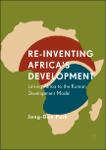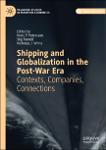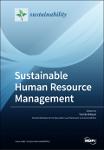Search
Author
- Jong-Dae, Park (1)
- Nicholas J., White (1)
- Niels P., Petersson (1)
- Paul, Dobrescu (1)
- next >
Subject
- Economics (4)
- Management science (4)
- Economic policy (3)
- Development economics (2)
- next >
Has File(s)
- true (5)
Search Results
This open access book asks why and how some of the developing countries have “emerged” under a set of similar global conditions, what led individual countries to choose the particular paths that led to their “emergence,” and what challenges confront them. If we are to understand the nature of major risks and uncertainties in the world, we must look squarely at the political and economic dynamics of emerging states, such as China, India, Brazil, Russia, and ASEAN countries. Their rapid economic development has changed the distribution of wealth and power in the world. Yet many of them have middle income status. To global governance issues, they tend to adopt approaches that differ from those of advanced industrialized democracies. At home, rapid economic growth and social changes put... |
This open access book explores the most recent trends in the EU in terms of development, progress, and performance. Ten years after the 2008 economic crisis, and amidst a digital revolution that is intensifying the development race, the European Union, and especially Central and Eastern Europe, are ardently searching for their development priorities. Against this background, by relying on a cross-national perspective, the authors reflect upon the developmental challenges of the moment, such as sustainable development, reducing inequality, ensuring social cohesion, and driving the digital revolution. They particularly focus on the relation between the less-developed Eastern part of the EU and its more developed Western counterpart, and discuss the consequences of this development gap... |
This open access book analyses the development problems of sub-Sahara Africa (SSA) from the eyes of a Korean diplomat with knowledge of the economic growth Korea has experienced in recent decades. The author argues that Africa's development challenges are not due to a lack of resources but a lack of management, presenting an alternative to the traditional view that Africa's problems are caused by a lack of leadership. In exploring an approach based on mind-set and nation-building, rather than unity – which tends to promote individual or party interests rather than the broader country or national interests – the author suggests new solutions for SSA's economic growth, inspired by Korea's successful economic growth model much of which is focused on industrialisation. This book will be... |
This open access book belongs to the Maritime Business and Economic History strand of the Palgrave Studies in Maritime Economics book series. This volume highlights the contribution of the shipping industry to the transformations in business and society of the postwar era. Shipping was both an example and an engine of globalization and structural change. In turn, the industry experienced and pioneered, mirrored and enabled key developments that led to the present-day globalized economy. Contributions address issues such as the macro-level shift of shipping’s centre of gravity from Europe to Asia, the political and legal frameworks within which it developed, the strategies and performance of both successful and unsuccessful firms, and the links between the shipping industry and the w... |
The concept of sustainability is important for companies both in the case of SMEs and worldwide multinational companies. Some key factors to help a company achieve its sustainability objectives are based on human resource management. Sustainable human resource management is a typical cross-functional task that becomes increasingly important at the strategic level of a company. Industry 4.0 technologies, Internet of Things, and competitive demands, as signs of globalization, have led to significant changes across the organizational structures and human resource strategies of companies. The increasing importance of sophisticated human resource strategies in the life of companies and the intention to find optimal design and operation strategies for sustainable human resource management... |





